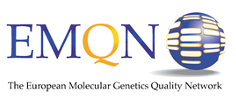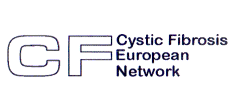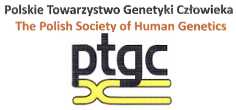Genetic Counseling
Genetic counseling is an opportunity to ask a physician all kinds of questions concerning the causes of a disease’s onset. A clinical geneticist informs a patient about the process of inheriting, the risk of having another child burdened with a given condition, and the likelihood that the disease will affect other family members’ offspring, as well as about the significance of the identified mutations’ impact on the organism’s functioning, the disease’s course, and finally treatment options. A physician specializing in clinical genetics takes part in patients and their families’ diagnostic process.
|
NZOZ Genomed Counseling Office Warsaw ul. Ponczowa 12, 02-971 Warszawa, Poland Fee: 300 PLN Counseling available in the following languages: Polish, English and Portuguese. |
|
Registration
Patients are kindly requested to register by phone, daily from 8:30am to 4:30pm, on (+48) 22 644 60 19.
Payment
Payable by transfer before the appointment or in cash and credit card upon arrival at the office.
Counseling payments should be made using the information below:
| Account No.: | 56 1600 1374 0003 0052 0282 6001 |
| Bank: | BNP Paribas Bank Polska S.A. |
| Recipient: | Genomed S.A. |
| ul. Ponczowa 12 | |
| 02-971 WARSZAWA | |
| Description: | GENETIC COUNSELING + the patient’s first and last name |
Why when suspecting a genetic disorder is it recommended to take counsel with a clinical geneticist, a specialized physician, before having genetic testing performed?
Making a correct genetic diagnosis is usually a complicated matter. The entire diagnostic process can be, by way of simplification, compared to arranging puzzle pieces.
The distinct puzzle pieces are: observations made of the patient (by him or herself, the family, medical personnel, pedagogues or psychologists), clinical testing results and a properly compiled family case history. The clinical geneticist’s task is to make a coherent whole out of the above elements.
Just as with puzzle pieces, of which most are so non-characteristic that alone they fit different images, so with a symptom, which may occur in a few or even a dozen genetic syndromes.
What is more, some symptoms show various degrees of development. For instance, palate deformity can manifest itself as a cleft palate that can be seen with the naked eye, but also as a cleft hidden beneath the mucous membrane or a barely visible cleft uvula, or finally only a slight pit of the upper lip.
When arranging a puzzle, the rule is that we have to match at least a few pieces before we can guess what the entire picture looks like. Analogically, we are usually able to identify a genetic syndrome only when faced with a characteristic constellation of many symptoms.
At times, a symptom - e.g. the patient’s appearance or, when suspecting a hereditarily conditioned cancer, histopathological examination results – is characteristic to such an extent that it is immediately associated with a specific genetic defect. However, noticing and interpreting that symptom requires the knowledge and experience of a clinical geneticist.
How can the counseling provided by a clinical geneticist be helpful once genetic testing has been completed?
A physician specializing in clinical genetics will also answer questions about the anticipated, further course of the disease and will help plan multidisciplinary, comprehensive healthcare or, in the case of those who are healthy, preventive testing. In the following years, if need be, the clinical geneticist will still assist specialists in other medical disciplines that will be taking care of the patient, and who frequently ask for counseling on, for example, the safety of administering certain drugs or medical procedures.
If the result of a recommended genetic test is correct, a second appointment serves to verify the clinical diagnosis and possibly change it.
However, it is often the case that a given genetic syndrome is caused by mutations located in a number of different genes (so-called genetic heterogeneity), so the absence of a mutation in one of them does not mean that the clinical diagnosis was incorrect. Further genetic testing in the previously chosen direction should then be planned.








